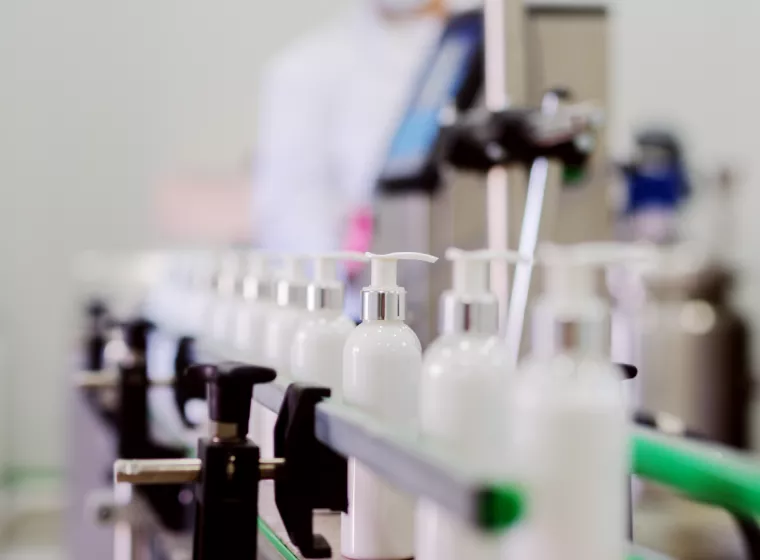August 23, 2023
Menstrual products and consumer cleaning agents could both face PFAS bans in California as the state senate considers two bills
The California legislature is now considering two separate bills banning per- and polyfluoroalkyl substances (PFAS) in everyday household products. Given the size of the California consumer market, these bills are expected to have wide-ranging national impacts on chemical and consumer products manufacturers and their supply chains.
Assembly Bill AB 727 would make California the first U.S. state to ban PFAS in household and industrial cleaners, and AB 246 would ban PFAS in menstrual products. These bills define PFAS as "a class of fluorinated organic chemicals containing at least one fully fluorinated carbon atom," consistent with other California bans passed in 2021 and 2022 on children's products and textiles.
This spring, the California Assembly voted 62-2 in favor of banning PFAS in cleaning agents and 70-0 in favor of banning PFAS in menstrual products. Both bills are now being considered by the California Senate, whose current legislative session lasts through Sept. 14.
AB 246 ban on PFAS in menstrual products could begin as early as 2025
As currently drafted, AB 246 would prohibit the sale or manufacture of tampons, pads, sponges, menstruation underwear, disks, and menstrual cups that contain PFAS beginning Jan. 1, 2025. A threshold test for the presence of PFAS — defined as 10 parts per million as measured in total organic fluorine — would be required at the start of 2027, though the bill text as drafted does not specify an approved methodology.
Minnesota and New York have also introduced bills to regulate or ban PFAS in menstrual products, while Georgia, Vermont, Nevada, and Massachusetts have introduced bills that would require manufacturers to disclose and label all ingredients used in period products.
AB 727 ban on PFAS in household cleaners would begin in 2026
California's other PFAS bill, AB 727, would ban PFAS in household and industrial cleaners, room freshening sprays, automotive polishes, and marine-use cleaning agents.
With phased-in requirements starting in 2026, the bill would ban PFAS as a product or ingredient at or above the following thresholds as measured in total organic fluorine:
- Starting Jan. 1, 2026, 50 parts per million
- Starting Jan. 1, 2027, 25 parts per million
- Starting Jan. 1, 2028, 10 parts per million
Penalties for noncompliant manufacturers are listed as $5,000 for a first violation and no more than $10,000 per day for each subsequent violation.
National supply chain implications for proposed California laws
For chemical suppliers and consumer products manufacturers, both proposed California laws would ripple across the national supply chain due to the size of the state's consumer market.
Currently, emerging PFAS regulations vary considerably across the U.S. in terms of chemical thresholds, testing standards, and compliance timelines. Proposed and passed state bills also vary in their requirements from outright bans to disclosure and product labeling requirements.
At the federal level, the Environmental Protection Agency has proceeded deliberately, with the agency noting critical gaps in the current understanding of PFAS toxicity across the range of included chemistries, including how harmful they may be to people and the environment. To date, EPA has proposed maximum contaminant levels for six specific PFAS compounds in drinking water.
There are no industry standardized testing methodologies for total organic fluorine in menstrual or cleaning products. While many commercial laboratories have independently validated methodologies for measuring total organic fluorine for some consumer products, these methodologies vary among the laboratories and the type of consumer products evaluated. Manufacturers are likely to encounter numerous challenges in testing raw materials and finished products.
What Can We Help You Solve?
Exponent closely monitors the continually changing PFAS regulatory landscape to help clients prepare for new PFAS regulations. Our experts have years of experience investigating supply chains for PFAS sources, working with third-party laboratories to test materials and products for specific PFAS and total organic fluorine, and assisting clients in making decisions that suit their product lines and stewardship goals.

PFAS Consulting Services
Manage PFAS in your products, supply chains, and waste streams.

Product Stewardship
Overcome business and regulatory challenges at every stage, from research and design to disposal and recycling.

Sustainability
Meet changing sustainability regulations with rigorous science and experienced consulting services.

Regulation & Safety of Personal Care Products
Ensure safe, high-quality personal care products with experienced consulting expertise.

Polymers Expertise for Consumer Products
Rigorous testing and analysis of polymers in consumer products.
![Efficacy & Biological Assessment Dossiers [CRFS]](/sites/default/files/styles/cards_home_card/public/media/images/GettyImages-1249116913.jpg.webp?itok=leogMNHO)
California Regulatory & Scientific Support
Rigorous scientific approaches to overcome regulatory challenges in the state of California.





